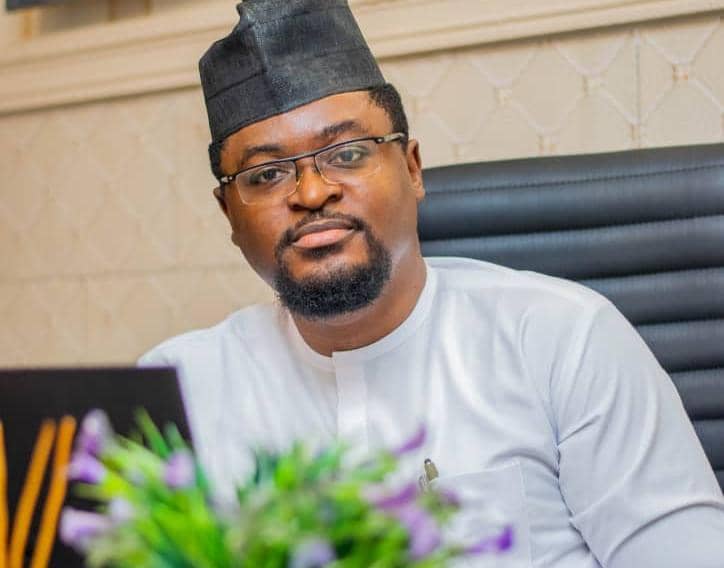Think of that man whose blue skies are crimsoned by the ravages of cancer. He cannot afford to travel abroad to get the needed treatment and his access to life-saving medical care at home hangs by a hair’s breadth. Many of us might have had a vicarious experience with this cell-corrupting proxy of death. We either know a friend, a friend’s friend, or a relative that has been afflicted. We could as well have been victims. But access to efficient and effective diagnosis, management, treatment of cancer, and other non-communicable diseases, as well as communicable diseases is about to improve tremendously.
In full apprehension of the economics of health and the fierce urgency of now, President Bola Tinubu directed the immediate upgrade of key health infrastructure and equipment across the six geo-political zones. Only a few months ago, a strategic blueprint, the Health Sector Renewal Investment Initiative, was launched. This health exemplar espouses a sector-wide motif geared towards improving population health outcomes through the primary healthcare system, and enhancing reproductive, maternal, and child health services in the country.
According to the World Health Organisation’s Country Disease Outlook for 2023, non-communicable diseases like cancer, cardiovascular disease, diabetes, and chronic respiratory disease were estimated to have caused 27 percent of deaths in Nigeria in 2019. The reality is, the country has a high burden of both communicable — malaria, tuberculosis, HIV/AIDS, etc — and non-communicable diseases. And child mortality rates are still well above SDG targets.
It is in the light of these pre-existing and immanent health perturbations that President Tinubu’s valiant directive is situated. To this end, the Federal Ministry of Health and Social Welfare in partnership with the Nigeria Sovereign Investment Authority (NSIA) will undertake an overhaul of cancer-treatment infrastructure and other critical accoutrements in six tertiary hospitals across the geopolitical zones, as well as expand prior investments to improve broad-based access to high-quality healthcare.
These tertiary hospitals — (1) University of Benin Teaching Hospital, (2) Ahmadu Bello University Teaching Hospital, (3) University of Nigeria (Nsukka) Teaching Hospital, (4) Federal Teaching Hospital, Katsina, (5) University of Jos Teaching Hospital, and (6) Lagos University Teaching Hospital – will be sanctuaries for oncology and nuclear medicine to ease access to deluxe cancer diagnosis and care across the country.
Also, 10 hospitals bestrewing the six geopolitical zones will be revamped to provide exigent and top-tier healthcare services in the line of radiology, clinical pathology, medical and radiation oncology, and cardiac catheterization.
The hospitals: (1) North-West: Reference Hospital, Kaduna — (Radiology, clinical pathology, medical and radiation oncology); (2) South-East: Medical Diagnostic Centre Complex, Enugu — (Radiology, clinical pathology, medical & radiation oncology); (3) North-West: Usman Danfodiyo University Teaching Hospital, Sokoto — (Diagnostic and intervention radiology, clinical pathology, and cardiac catheterization); (4) South-West: University College Hospital, Ibadan — (Diagnostic and intervention radiology, clinical pathology, and cardiac catheterization); (5) South-South: University of Uyo Teaching Hospital — (Radiology and clinical pathology); (6) North-East: Abubakar Tafawa Balewa University Teaching Hospital, Bauchi — (Radiology and clinical pathology); (7) South-South: Federal Medical Centre, Asaba — (Radiology and clinical pathology); (8) North-Central: Harmony Advanced Diagnostic Centre Complex, Ilorin — (Radiology and clinical pathology); (9) North-Central: Jos University Teaching Hospital — (Radiology and clinical pathology), and (10) North-East: Federal Medical Centre, Nguru — (Radiology and clinical pathology).
These projects when completed, within 12-18 months, will among other benefits, improve screening and diagnostics for communicable and non-communicable diseases; reduce mortality rates, as well as improve outcomes for non-communicable diseases.
It takes a healthy population to build a thriving economy. A diseased or decaying population cannot be very productive. Healthcare is an intrinsic element of human capital development, which is the nucleus of the overall wellbeing and advancement of society.
The Tinubu administration has put healthcare on the foreground of its policy ideation, iteration, and implementation, with an understanding of the fundamentality of this variable in domestic economics.
At the 37th Ordinary Session of the Assembly of Heads of State and Government of the African Union, President Bola Tinubu was appointed as the African Union (AU) Champion for Human Resources for Health and Community Health Delivery Partnership in honour of his bold and groundbreaking interventions in the sector.
The administration is training 120,000 frontline health workers over the next 16 months; it is doubling the number of primary healthcare facilities in communities across the federation from 8,800 to 17,000 over the next three years; it is increasing health personnel enrolment capacity of accredited nursing and midwifery institutions by two-fold to accommodate the new demand created by new facilities across Nigeria, and it is establishing a paid volunteer youth force of social accountability officers to monitor the functioning and financial integrity of primary healthcare centres.
This is clearly innovative, purposed, and audacious.
As the President said: ‘’Health is not merely the absence of disease but the embodiment of physical, mental, and social well-being. It is a fundamental human right and Nigeria’s commitment to achieving Universal Health Care Coverage is reflected in the unwavering dedication of my administration to uphold this right for every individual, young or old, in rural or urban areas.”




